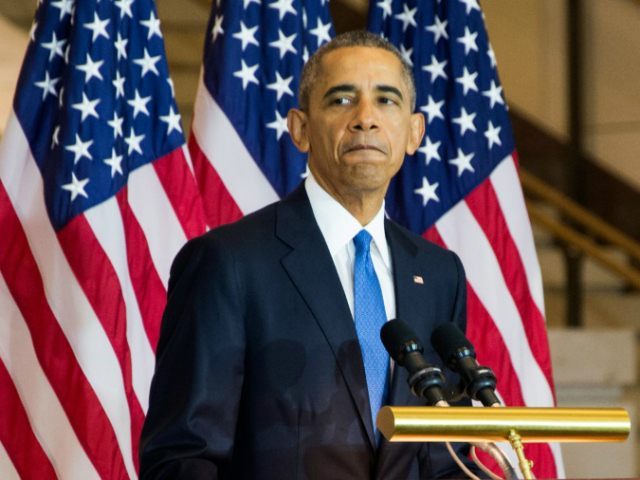The Cadillac tax was made famous last year by Obamacare architect Jonathan Gruber who said it was a ploy designed to fool “stupid” American voters. Now the tax is facing a 2-year delay as part of a congressional budget deal, with leading Democrats helping push the deal forward.
The White House spokesman said on Wednesday that the administration would “strongly oppose” any effort to repeal the Cadillac tax, but that is sounding more and more like an empty threat. Congress is working out a last-minute budget deal which, if it goes through, could delay the start of the Cadillac tax from 2018 to 2020.
The problem for the Obama administration is that the tax is as unpopular with Democrats as it is with Republicans. Hillary Clinton called for its repeal in September. More recently, both Sen. Harry Reid and Rep. Nancy Pelosi came out against the tax and are leading Democratic efforts to delay it as part of the current budget deal. Democratic opposition appears to stem from unions which are against the tax because it impacts the type of generous health plans they negotiate with employers to secure for workers.
The Cadillac tax probably took a fatal PR blow last year when Obamacare architect Jonathan Gruber revealed it was created as an accounting gimmick so that progressives could claim it was a tax on insurers rather than individuals. On three separate occasions, caught on video, MIT economist Jonathan Gruber explained the tax was intended to take advantage of Americans’ stupidity. “Lack of transparency is a huge political advantage. And basically, you know, call it the stupidity of the American voter or whatever,” Gruber told an academic conference at the University of Pennsylvania in 2013.
The Cadillac tax was also dishonest in another way. It was initially sold, as the name implies, as a tax on the very wealthiest and most generous plans. However, the intent all along was to have the number of plans which fell under the proposed limit grow so that, over time, all employer-provided plans were hit with the tax. CNN’s Jake Tapper explained how this was intended to work in an excellent video clip published last year.
A survey of employers released this week by United Benefit Advisors found 30 percent of employers would face the tax if it takes effect in 2018 as currently scheduled. By 2022, that would jump to 74 percent. In a press release about the findings, , said, “.'” He added, “”
The Cadillac Tax may not be long for this world. The problem for supporters of Obamacare is that this tax—along with the medical device tax, which is also on the chopping block—were major sources of income for the program. The Cadillac tax was expected to bring in $87 billion over the first 8 years. If the tax is delayed once, the number of businesses subject to it will be greater by the time it is next scheduled to take effect. That could put it on the path to another delay or outright repeal. And if that happens, the cost of maintaining Obamacare will have to be met in some other way.

COMMENTS
Please let us know if you're having issues with commenting.